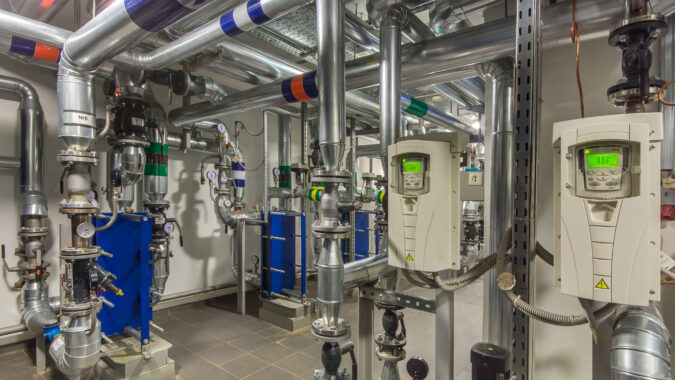The New Jersey Board of Public Utilities approved a plan on Wednesday to incentivize the installation of electric heating and cooling systems in buildings as part of the state’s decarbonization strategy, which NJBIA said was a mandate on state utilities and ignores power reliability and cost concerns.
“It is irresponsible for the state to move ahead with new sources of demand and hope that the grid and generation capacities will be there,” NJBIA Deputy Chief Government Affairs Officer Ray Cantor said in a statement. “An energy failure means that our lives stop, people’s health and wellbeing are at risk, and businesses cease operation.”
Decarbonization of buildings is a key component of the state’s Energy Master Plan, which calls for the installation of zero-carbon-emission space heating and cooling systems in 400,000 New Jersey homes and 20,000 commercial properties by 2030.
While the state’s efforts to lower carbon emissions are laudable, a 100% building electrification policy is not the best approach for several reasons, Cantor said.
“First, there has been no comprehensive planning or investment in either the transmission or generation systems adequate to support a massive building electrification policy,” Cantor said. “Secondly, there are other, and perhaps less costly and more efficient options, to decarbonize our building sector. And, finally, electrification is not carbon-free, and in the short term, may even result in more carbon emissions.”
Other controversial components of the Energy Master Plan call for phasing in a ban on the sale of new gasoline-powered cars in New Jersey by 2035. NJBIA previously criticized the electric vehicle mandate as well for ignoring the costs and feasibility of implementing such a massive change in such a compressed timeframe.
Under the Murphy administration’s proposed Advanced Clean Cars II rule filed with the Administrative Office of Law, the phase-out of gas-powered vehicles would begin in the 2027 model year, with a mandated target of having electric vehicles (EVs) comprise 43% of new car sales. That percentage would increase each year, eventually reaching 100% by 2035.
“If targets are not reached under this mandate, it’s likely there will be a sizable penalty or surcharge imposed on the buyer of every non-EV car sold,” Cantor said. “So, we will see the real-world impacts of costs much sooner than 2035. This mandate will actually drive up the cost of all cars in New Jersey, new and used, by thousands of dollars.”




